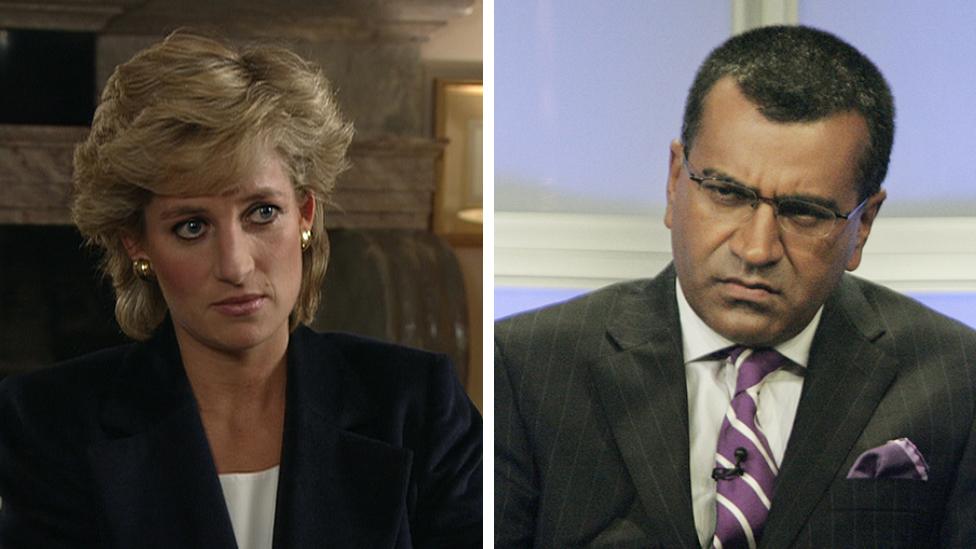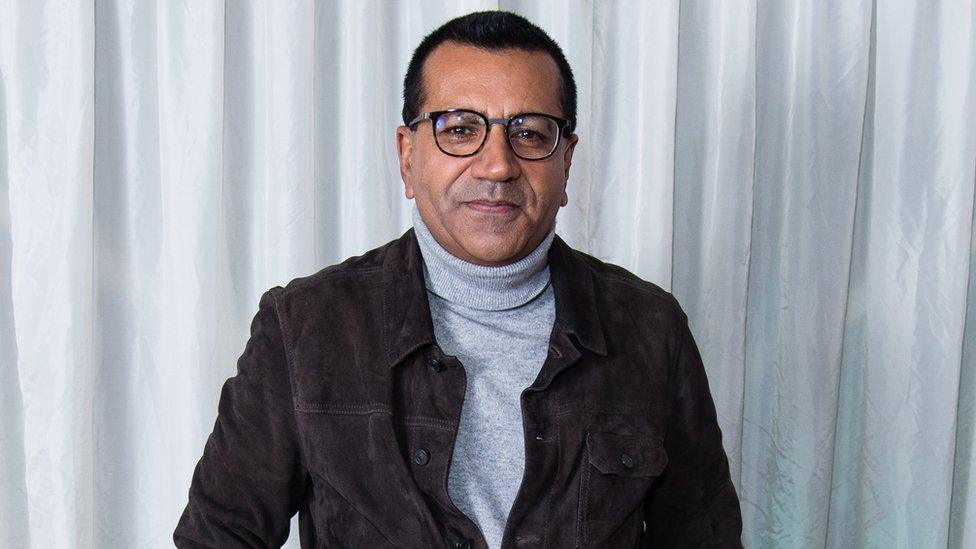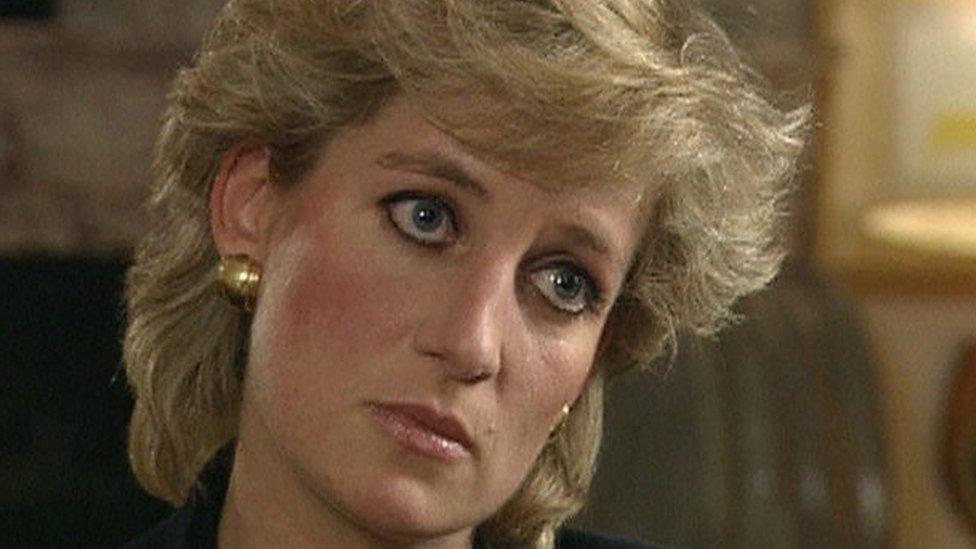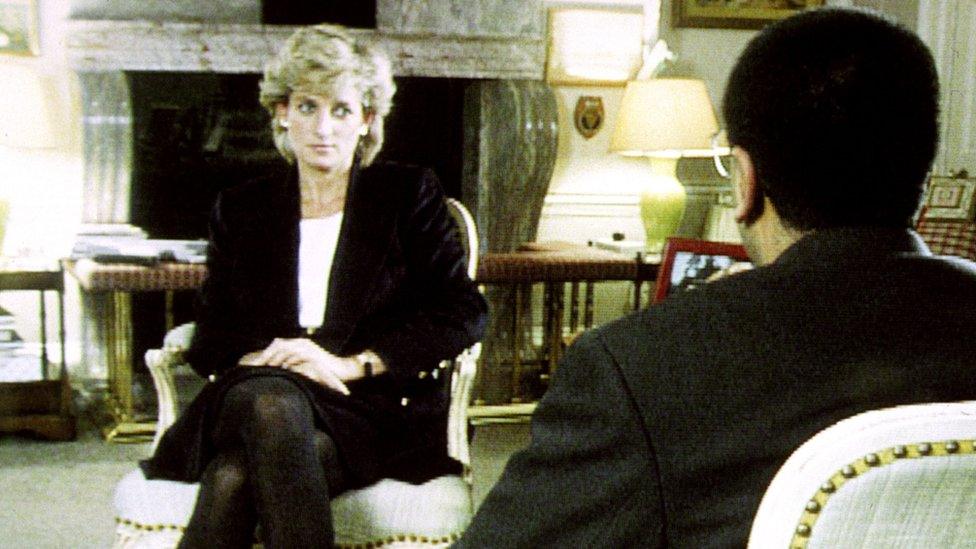BBC unveils 'significant' 10-point impartiality plan
- Published

Tim Davie said BBC staff must meet "the highest standards"
The BBC has announced changes to raise standards across the organisation and challenge claims of bias.
It has published a 10-point plan, external focused on impartiality, whistleblowing and editorial standards.
The plan includes regular reviews of content, increased transparency and a new editorial whistleblowing policy.
The BBC faced criticism earlier this year over the "deceitful" way Martin Bashir's 1995 interview with Princess Diana was obtained.
"The BBC's editorial values of impartiality, accuracy and trust are the foundation of our relationship with audiences in the UK and around the world," said director general Tim Davie.
"Our audiences deserve and expect programmes and content which earn their trust every day and we must meet the highest standards and hold ourselves accountable in everything we do.
"The changes we have announced not only ensure we learn the lessons from the past but also protect these essential values for the future."

The Dyson Report criticised how Bashir (right) obtained his interview with Princess Diana
The impartiality plan has been informed by a review into its editorial processes, governance and culture that was commissioned by the BBC Board in May.
It follows the publication in May of the Dyson Report, external, Lord Dyson's independent investigation into the circumstances around the 1995 Panorama interview with Diana, Princess of Wales.
The "key actions" from the BBC's impartiality plan include:
"Thematic reviews" covering output in key areas of public debate to ensure a breadth of voices and viewpoints are reflected, with the first to cover UK public spending and taxation
Increased responsibility for the BBC's Editorial Policy team, with reviews to content by internal management to assess how much it meets the corporation's editorial standards
A simple set of procedures for dealing with internal investigations
"Clarifications" to how the BBC handles accelerated editorial complaints about broadcast or published content
Monitoring of such "impartiality metrics" as editorial complaints, staff training, audience perception and demographic data
Making the BBC's editorial guidelines "more prominent and easy to use" for all BBC staff
Putting two experts with non-BBC experience on its Editorial Guidelines and Standards Committee
Extending the BBC's impartiality training to freelances and new joiners at all levels
Adopting new measures to improve transparency both internally and externally
Adopting a new editorial policy on whistleblowing policy
Tasking managers with ensuring that audiences from all parts of the UK are represented both on and off screen
Sir Nicholas Serota's review, published on Friday, external, found that "much has changed" over the past 25 years but said there was "still potential for significant improvement".
The former Tate director said there was an opportunity for BBC leaders "to go further and ensure that accuracy, impartiality, fairness and integrity are embedded more deeply across the organisation."

In what will be seen as a reference to Martin Bashir, the report says that the risk of "a rogue journalist circumventing editorial controls" can never be eliminated entirely.
Yet it says that the guidelines, culture, safeguards and governance put in place since his Panorama interview mean "the risk of circumvention occurring and going unchecked has been reduced significantly".
"Nevertheless, successful organisations learn from their mistakes."
Bashir has now left the BBC for the second time following his rehiring in 2016 as its religion editor.
"We need a BBC that is beyond reproach when it comes to impartiality, standards, processes and transparency," said BBC chairman Richard Sharp.
"The Serota Review makes clear recommendations to the Board across all these areas, which will be acted upon."
Comedy 'should not be fenced'
Prior to the Serota Review's publication, Tim Davie took to the pages of the Telegraph to warn against any watering-down of the BBC's comedy content.
"We need to ensure that genres such as comedy are not neutered by a desire to play things safe," the director general wrote, external.
"We all know there are limits, and that a routine fuelled by gratuitous unpleasantness is unfunny," he continued.
"But we should not be fenced into limited creative spaces where no one can take any offence."

Jo Brand appears regularly on the BBC's TV and radio panel shows
Panel shows like BBC One's Have I Got News For You have faced criticism in recent years for jokes that have been deemed by some to be beyond the pale.
In 2019 the BBC ruled that comedian Jo Brand "went beyond what was appropriate" by making a controversial joke about throwing battery acid on a Radio 4 comedy show.
The corporation said comedy "will always push boundaries" but said it regretted any offence the edition of satirical show Heresy had caused.
Earlier this year it said comedy was "one of the most subjective areas of programming" while defending a quip Katherine Ryan made on All That Glitters: Britain's Next Jewellery Star.

Follow us on Facebook, external, or on Twitter @BBCNewsEnts, external. If you have a story suggestion email entertainment.news@bbc.co.uk, external.
Related topics
- Published15 September 2021

- Published14 June 2021

- Published24 May 2021

- Published20 May 2021

- Published29 October 2020
